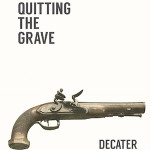#8 Lolita
 The second book in my series of reviews on the top 100 novels of the last 100 years, Lolita is perhaps the most infamous of the list. I had never read it before, as I have always been turned off by what I assumed would be a depressing story. Now that I’m finished, I can say that Lolita both was and was not the novel I was expecting.
The second book in my series of reviews on the top 100 novels of the last 100 years, Lolita is perhaps the most infamous of the list. I had never read it before, as I have always been turned off by what I assumed would be a depressing story. Now that I’m finished, I can say that Lolita both was and was not the novel I was expecting.
Nabokov tells the story through the first person perspective of Humbert Humbert (not his real name), who must go down as one of literature’s least reliable narrators. As he relates his love affair with his 12-year-old step-daughter, we can never be sure of what is fact and what emanates from his skewed imagination. For many of the events he is drunk; for all of them, he does his best to hide himself from the truth of what he has done. I was fully expecting to feel nauseous at the realistic portrayal of pedophilia. I was not prepared for the mad onslaught of ecstatic prose that characterizes Nabokov’s style.
As I’m fully aware that every English major with a computer and an internet connection is blogging about the Great Books, I’ll keep this short. I have two things I want to say about Lolita. If I exceed the two, feel free to punch me in the stomach.
First, the flowery onslaught of visual language, whether in the form of metaphor, turns of speech, invented vocabulary, or descriptive wordplay, strikes me as the apotheosis of high school prose. It’s eagerness is only equaled by its earnestness, and it infiltrates the inner voice of the reader with the same determination as Catcher In The Rye. I’d hate to be the creative writing teacher who has to grade all the short fiction produced just after the class has finished reading Lolita.
But Nabokov is not simply engaging in self-congratulatory linguistic gymnastics. He lets us in on the secret almost immediately, when Mr. H allows, “If you can still stand my style…” This is Humbert Humbert’s story we’re reading, not Nabokov’s, and if he wants to weigh down his reality with affectation and an antiquated lexicon, well, it must say something about the type of person we’re dealing with.
This is not realism. Mr. H dare not face reality. His entire world is a fiction, lest he be subjected to the horrors of his grotesque malignities. HH is a romantic, and he believes he and his step-daughter are embarking on a grand love affair. Even at the end, when he can no longer entirely hide from his crimes, he still believes there were light moments and true affection. He believes he always tried to have Lolita’s best interests at heart. It’s only in the margins we understand the extent of his malevolence. The truest moment of the entire book is when he casually mentions that Lolita cries herself to sleep every night.
Second, Lolita explores the very dark question of what happens when a person is afflicted with dangerous, destructive impulses which they cannot deny. As evil and twisted, and as nausea inducing, as HH might be, I still can’t help but feel pity for him. He cannot help his desires, that much is clear. His compulsion absolutely does not absolve him of his actions, but it does require us to more closely examine the fragility of human nature. Is Mr. H doomed to his living hell, or is there some way for him to escape his pathologies without giving in to them?
We all have our damaging impulses which haunt us. We are addicted to chemicals. We gamble and we drink. We lie and steal and get into arguments with strangers. We cheat on our spouses. We know an action is wrong but something compels us to do it anyway. We have phobias and manias and neurological disorders and dysfunctions. It’s sad to think about a person who’s been afflicted by some damaging obsession they simply can’t ignore no matter how strenuously they try. It’s something I can fully sympathize with.
I’m a Kansas City Royals fan after all.
Please Note: The style of this blog post was in no way affected by having just read Lolita.
 Check out Decater's new novel, available now at Amazon. Plus, don't forget his earlier books: Ahab's Adventures in Wonderland and Picasso Painted Dinosaurs.
Check out Decater's new novel, available now at Amazon. Plus, don't forget his earlier books: Ahab's Adventures in Wonderland and Picasso Painted Dinosaurs.


